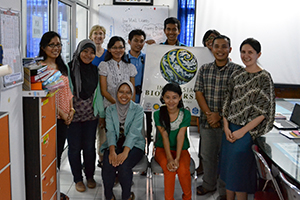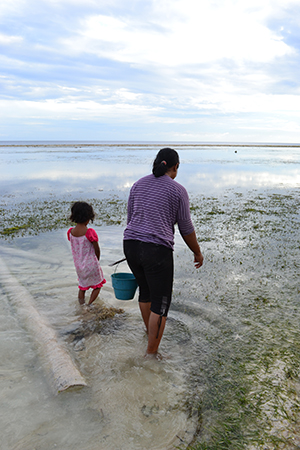The ocean provides many resources and perils. Coastal communities in developing nations intimately experience both. Island nations are often highly dependent upon marine resources for their livelihoods and are at risk from storms and a changing ocean. After seeing the extreme international need during an AAAS Fellowship working at the US Agency for International Development, I strive to use our knowledge to help manage marine resources and assist vulnerable coastal communities – from informing the design of marine protected areas and fisheries management schemes to working with scientists in developing countries to improve the local capacity. Our current work focuses on quantifying human health and nutrition benefits of marine resources uses existing data sets
Oceans & Human Health
While much of the intersection between oceans and human health in the USA focuses on marine sources of health risks – e.g. harmful algal blooms, Vibrio spread – the ocean also provides food and livelihoods that positively impact human health. For many, marine-sourced foods are their only source of protein and essential vitamins and minerals. By safeguarding marine resources, conservation efforts can have the added benefit of improving human health and wellbeing. Additionally, research has shown that incorporating health programs into conservation efforts can increase the positive ecological impacts.
Considering the human and ecological connections is vital to achieving sustainable development. Unfortunately, the evidence for these connections are only beginning to be quantified. When do marine conservation programs help or hurt human health? Who relies on marine resources for supplemental sources of food and income? The goal is to contribute to an evidence base to convince international development policymakers that biodiversity and conservation are essential components of development programs.

